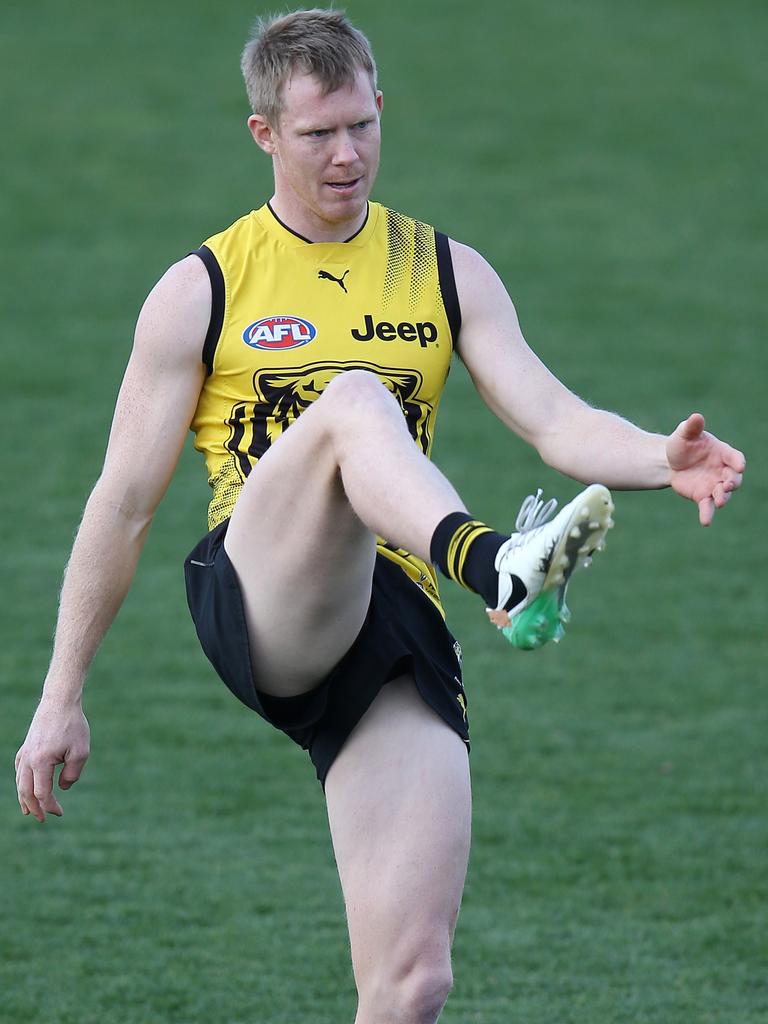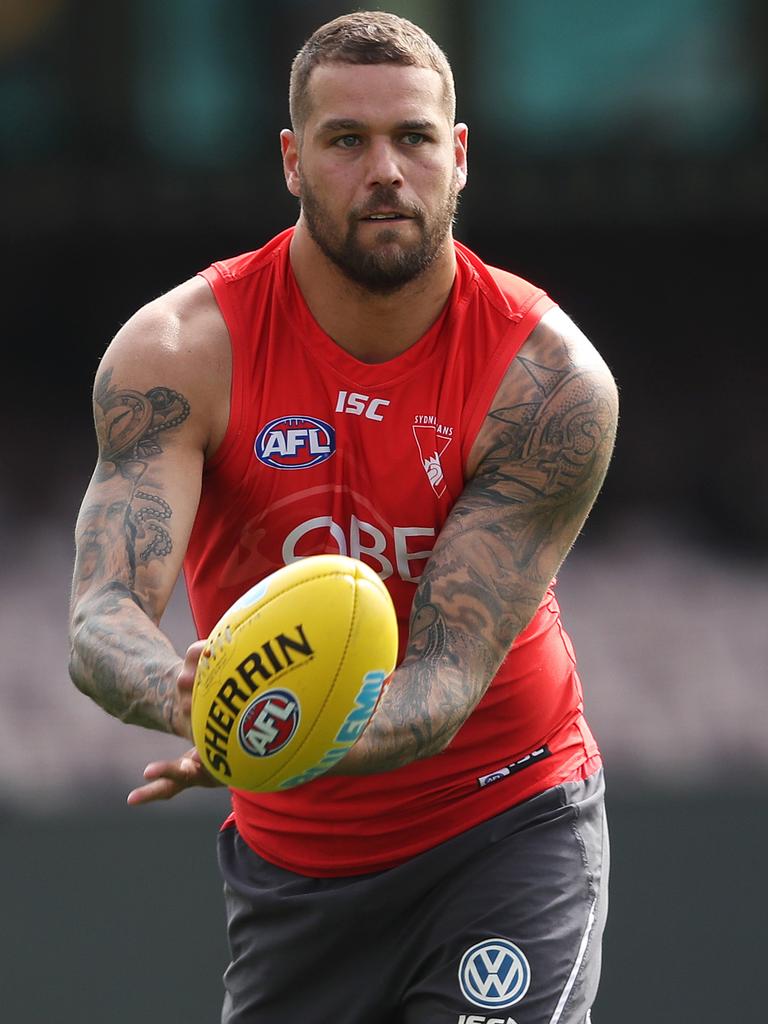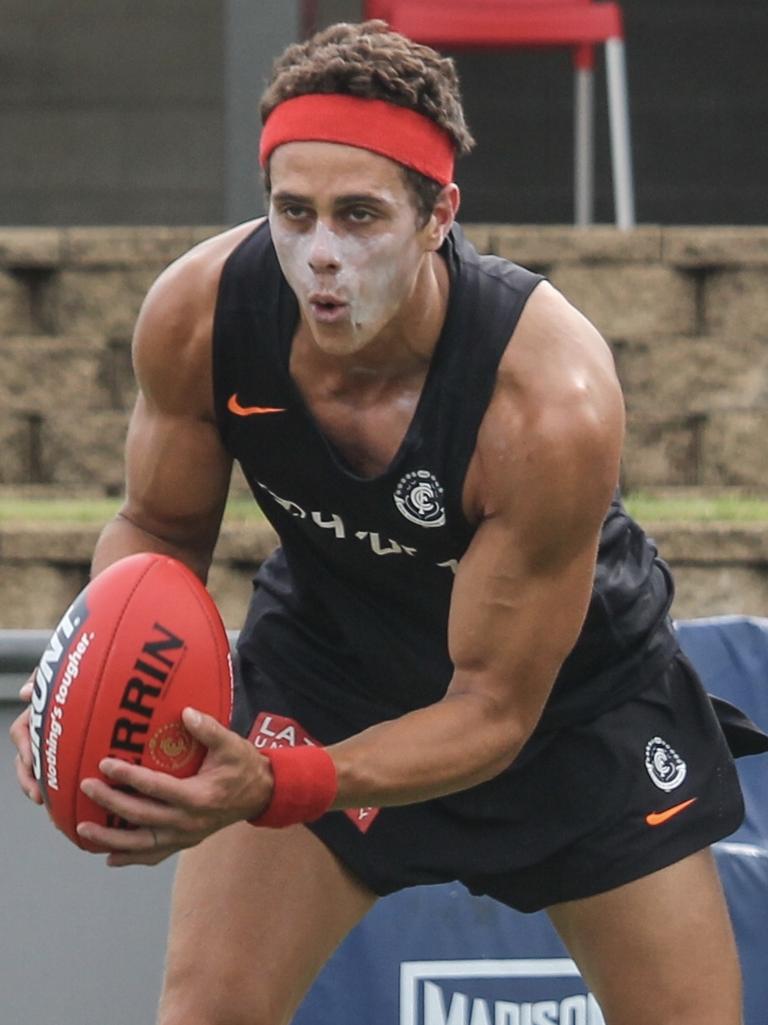Big scorers can be hot and cold, consistency is key to SuperCoach success, writes Paul Dunn
Should you pick the guy that can produce the massive score or the guy that will deliver week-in, week-out? Paul Dunn delves into the stats to reveal the most consistent SuperCoach stars.
Supercoach
Don't miss out on the headlines from Supercoach. Followed categories will be added to My News.
One of the greatest feelings in SuperCoach is to log into your team and see a massive score next to one of your players.
However, there is nothing worse than seeing a guy score you a 160-plus one week and then return something under 80 the following week.
RESEARCH: EVERY JLT SERIES SUPERCOACH SCORE
FIXTURE: HAVE YOU FORGOTTEN ABOUT THE BYES?
UNIQUE GUNS: UNDER THE RADAR JLT STARS
EXPERT: FANTASY FREAKO’S SUPERCOACH SQUAD
So, while we want to select those guys that are going to score big there is a little bit of science involved to help us maximise the scoring, it isn’t always the guy that can have the biggest score of the season that is the one you want on your team.
Let’s have a look at a few case studies from 2018 and see what we would like in a player.
Lance Franklin is probably the poster boy for this discussion. Buddy can have a massive game but he can just as easily put in a stinker.


If we have a look at last season he finished with an average score of 100 from his 18 games.
Only three other players with forward eligibility this year averaged more than him, so he may look like a great choice for your team.
However, Buddy is either boom or bust. In his 18 games only eight of those were actually over 100.
There was a 175, 178 and a 161. Those weeks he would have most certainly helped you get the win in your league.
But he also posted scores of 48, 52, 60 (twice), 61 and 73. While the 73 isn’t horrific the other five scores won’t help you get over the line.
This is where just looking at a player’s average can lead you to a false sense of security.
We need to dig into the stats a bit further and look at what is known as the standard deviation, that is, how consistent are they with their scoring.
It would come as no surprise to those who like their stats that Buddy was the third-most erratic scorer in the league last year.

Coming in at a bigger variation than Buddy was Jack Riewoldt. He was second highest in terms of standard deviation.
He had the biggest score of the season which was the massive 219 in Round 21, but his next best was a 135. Overall, he had eight scores over 100 out of his 22 games.
In the remainder of his games he did have a 3 after an early concussion as well as a 35, 65, 70 and a pair of 77s. He isn’t quite as diverse as Buddy but he does make this list thanks to that big 219.
EXPLAINER: HOW SUPERCOACH SCORING WORKS
TACTICS: FIVE TRICKS TO BOOST YOUR SUPERCOACH SCORE
HINTS: 21 TIPS FOR SUPERCOACH SUCCESS
The biggest offender in 2018 was Jack Darling.
Early in the season, when Josh Kennedy was just finding his feet after injury, he was great with six of his first nine games being over 110, the last being a huge 181, but there was also a 42 in that mix.
After that he didn’t hit 100 again until Round 23 with a concussion-affected score (-1) and an ankle injury (14) to go with his 39, 42, 62 and 68.
So while picking these guys that have a huge ceiling can be great for you one week it can really cost you another week, and that may be the week you really need them.
On the flip side, you should be looking at guys that are going to be there week-in and week-out but don’t get those massive scores and, more importantly, don’t get those low scores.

If we look at players that played more than 20 games and averaged over 100 points, the one that tops the table is Dyson Heppell.
He played all 22 games and had a top score of 142, certainly not too shabby.
He had 13 scores of 100 or better and while he did throw in a 53 he only had three scores under 80.
So we can see that Dyson is a more consistent player for your squad and as we will see later on actually scored more points overall thanks to his ability to play all 22 games.
Second on that list was, surprisingly, Justin Westhoff, who averaged 101 and had a high of 147 and a low of 73.
Third was Ed Curnow, who also averaged 101 and had a high of 148 with a low of 51 — in Round 23. His second lowest was 85.
We’re not suggesting that Westhoff is going to do that again this year due to his role change, but there is nothing to say that Dyson and Ed won’t repeat their efforts of last season in 2019.
While looking at these stats we can see an interesting trend, and that was that the three players that had the most volatile scoring were all key forwards.


We have long preached that these aren’t the guys that we look at when selecting our teams.
The only previous exception to this was Buddy, but he isn’t guaranteed to play 20 games a season any more.
Lastly, if we look at the top-priced forward this season, Patrick Dangerfield, we see that he averaged 121 and had a high of 187 but, most importantly, his lowest score was 94.
He had only two games under 100. If that doesn’t just scream lock and throw away the key we don’t know what does.
On the other lines, Jake Lloyd averaged 112 with a high of 173 and a low of 71, Brodie Grundy averaged 130 and only had three scores under 100 with the lowest being 95, and in the midfield Heppell was the standout for consistency.
Jack Riewoldt had the biggest individual score but scored just 2043 points for the season, Buddy had just 1802 and Darling 1564.
On the other side Dangerfield had 2555, Grundy 2870, Westhoff 2227, Curnow 2136 and Heppell 2235.
This further illustrates that one-off huge scores aren’t the key to improving your overall SuperCoach ranking, consistency and durability are the best qualities.
What we want to find in our analysis are those players that are not only going to stay on the park, but importantly are going to give us consistently good scoring rather than those that are going to have massive weeks and then shockers.
The smaller the distance between those two extremes the better they will be for your SuperCoach team each week.
Originally published as Big scorers can be hot and cold, consistency is key to SuperCoach success, writes Paul Dunn




